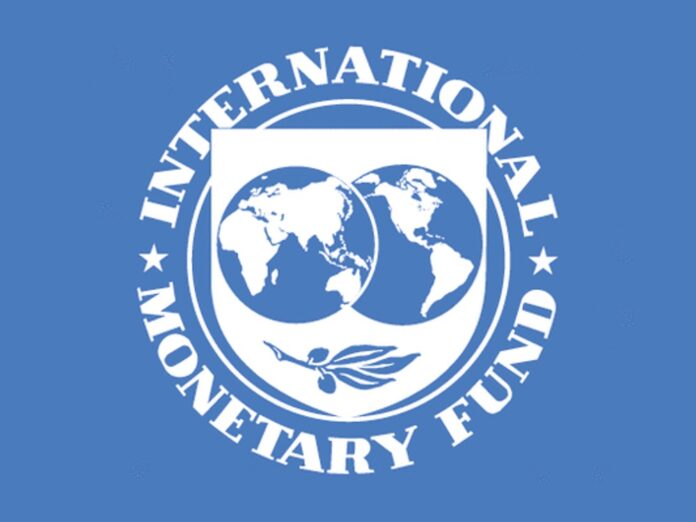
WASHINGTON, Jun 11, CMC – The executive board of the International Monetary Fund (IMF) says Dominica’s economy has continued its expansion and that real gross domestic product (GDP) grew by 3.5 percent last year, supported by a recovery in tourism and targeted development investment to boost economic capacity and competitiveness.
In a statement following its Article IV consultation with the Caribbean island, the IMF executive board said that inflation has eased from its 2023 peak of seven percent, averaging 3.1 percent in 2024.
“Tourism arrivals have surpassed pre-pandemic levels by roughly 32 percent, but the composition has shifted towards cruise visitors over stayovers. The labour market recovery remains uneven, with formal employment lagging behind overall growth.”
The Washington-based financial institution said that fiscal and external imbalances have narrowed but remain large. The primary balance improved by 2¼ percentage points (ppts) to a deficit of two per cent of GDP in the financial year, 2023/24, reflecting declines in primary current spending that more than offset moderately lower revenues.
The IMF said public debt has steadily declined from its pandemic peak but remains elevated at 100 per cent of GDP. It said the current account deficit narrowed by two ppts to 32¼ per cent of GDP in 2024, reflecting higher tourism receipts.
“The financial system is liquid with a mixed credit picture and balance sheet fragilities that require monitoring. Bank credit has declined further since 2023, reflecting ongoing de-risking amid persistent balance sheet challenges, notably elevated non-performing loans (NPLs) and still fragile provisioning.
Meanwhile, the credit union (CU) sector is expanding its lending portfolio rapidly, despite weak capitalization, high NPLs, and limited provisioning. Modernizing the supervisory framework governing these institutions is a priority to safeguard financial sector stability, given their growing systemic importance.”
The IMF executive board said that Dominica’s economic expansion is poised to continue, but risks to the outlook are elevated and tilted to the downside.
It said real GDP growth is projected to average 3.5 percent over the next three years, underpinned by ongoing investment in flagship infrastructure projects to boost tourism capacity and transition to lower-cost geothermal energy.
The IMF said heavy import-related content of these projects has eroded the external position, which is assessed to be substantially weaker than implied by medium-term fundamentals and desirable policy settings, but gradual improvements are expected as major capital outlays wind down and fiscal consolidation intensifies.
It said risks are elevated, reflecting Dominica’s vulnerability to natural disaster shocks and amid the evolving trade policy and geopolitical environment.
The executive board said more ambitious fiscal consolidation than what is envisaged under the authorities’ current policies is needed to reduce economic imbalances and mitigate disaster risks while helping to reinforce prospects for resilient growth.
“The overall risk of debt distress is high and as such, it is critical to rebuild fiscal buffers by achieving and maintaining a primary surplus of 3.5 percent of GDP from 2026 onward to reduce public debt below 60 per cent of GDP by 2035 as well as adequately capitalize the Vulnerability and Resilience Fund to mitigate disaster risks.”
The executive board said that the strategy should focus on broadening the revenue base, optimizing expenditures to preserve space for macro critical investment, and enhancing the targeting and sustainability of social protection programnmes.
It said reducing balance sheet vulnerabilities and strengthening regulatory oversight are critical.
“For banks, priorities include stricter enforcement of provisioning and NPL standards, managing loan loss allowances, and facilitating the disposal of impaired assets, while closely monitoring sovereign and foreign investment exposures.
“For credit unions, reforms to modernise the prevailing regulatory regime are essential by reinforcing the Financial Services Unit’s operational independence, enhancing risk-based supervision, updating regulatory thresholds, strengthening provisioning and loan management frameworks, and bolstering enforcement tools.”
The IMF said that continued structural reforms are essential for fostering resilient and sustainable growth and that addressing structural challenges that hinder financial intermediation remains a priority.
It welcomed the upcoming launch of a regional credit bureau, adding that complementary reforms should aim at modernizing collateral, foreclosure, and bankruptcy frameworks.
“Eliminating gaps in education and training relative to economic needs is essential to improve labour market outcomes. A comprehensive approach is needed to foster innovation and allocative efficiency, including exploiting digitalization and streamlining administrative processes for tax compliance, business registration, and permitting.”
The IMF said concerted efforts to bolster institutional frameworks to mitigate risks and support surveillance, economic planning, and policy execution should continue.
It said progress on regional coordination across Citizenship-by-Investment (CBI) programmes to improve due diligence and transparency is welcome.
“Proactive engagement to address evolving concerns around Dominica’s CBI regime remains critical to safeguard this essential source of development financing,” it said.
Under the CBI programme, Dominica provides citizenship to foreign investors in return for making a substantial investment in the socio-economic development of the island.
CMC/gh/ir/2025

